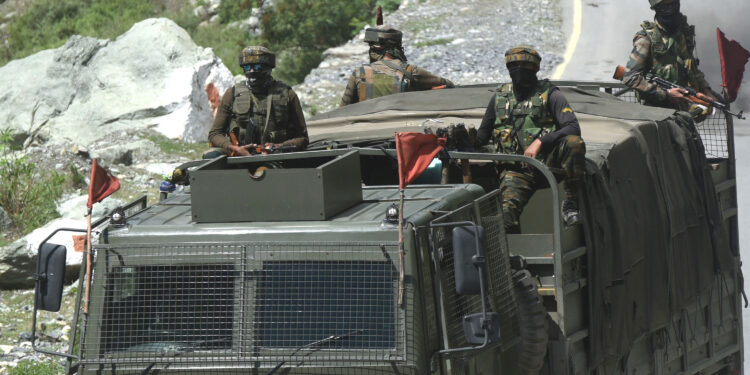Crédito: fuente
SINGAPORE — Small miscalculations in a tense border standoff between India and China high in the Himalayas could lead to big mistakes, a former national security advisor to India said Wednesday.
Troops on both sides have been engaged in a dispute since May and in June, a fatal clash killed 20 Indian soldiers. China did not disclose if its troops suffered any casualties. New Delhi and Beijing have been in talks to de-escalate the situation and disengage completely, but both sides have accused each other in recent weeks of breaching the informal border.
«I realize how small miscalculations lead to big mistakes,» M. K. Narayanan told CNBC’s «Street Signs Asia» on Wednesday. Narayanan previously served as national security advisor between 2005 to 2010 and has spent most of his public service career working in intelligence.
«I think the powers in India, at least, know and understand this. I am not too sure whether the present Chinese leadership fully comprehends (it),» he said, adding that he was worried, «whether there are sober voices that can influence (President) Xi’s thinking.»
«We are in a situation which has many dangerous possibilities. So, I think we are in for a difficult time ahead,» Narayanan said.
This week New Delhi and Beijing accused each other of firing in the air during renewed confrontation at the unmarked border where opposing troops are positioned in close proximity.
India’s external affairs ministry said Chinese soldiers who attempted to close-in on one of the Indian forward positions along the de facto border known as the Line of Actual Control fired «a few rounds in the air in an attempt to intimidate own troops.»
China’s foreign ministry said Indian troops «illegally crossed the line» and «blatantly fired shots to threaten the Chinese border patrol personnel who approached them for representations.» India denied its troops crossed the line or resorted to aggressive means.
Because opposing troops are stationed not far from each other, a fatal misfiring could lead to severe escalation and a bigger confrontation between the nuclear-armed rivals, according to Narayanan.
Firearms are limited in the border areas under a previous agreement, which implies this week’s confrontation further escalates the risks related to the border standoff.
The border confrontation has also worsened the China-India bilateral relationship, as New Delhi puts up barriers to Chinese investments in the Indian economy on the grounds of national security. That includes restricting Chinese investments into Indian tech companies and banning many popular Chinese apps, including the short-video-sharing app TikTok.








